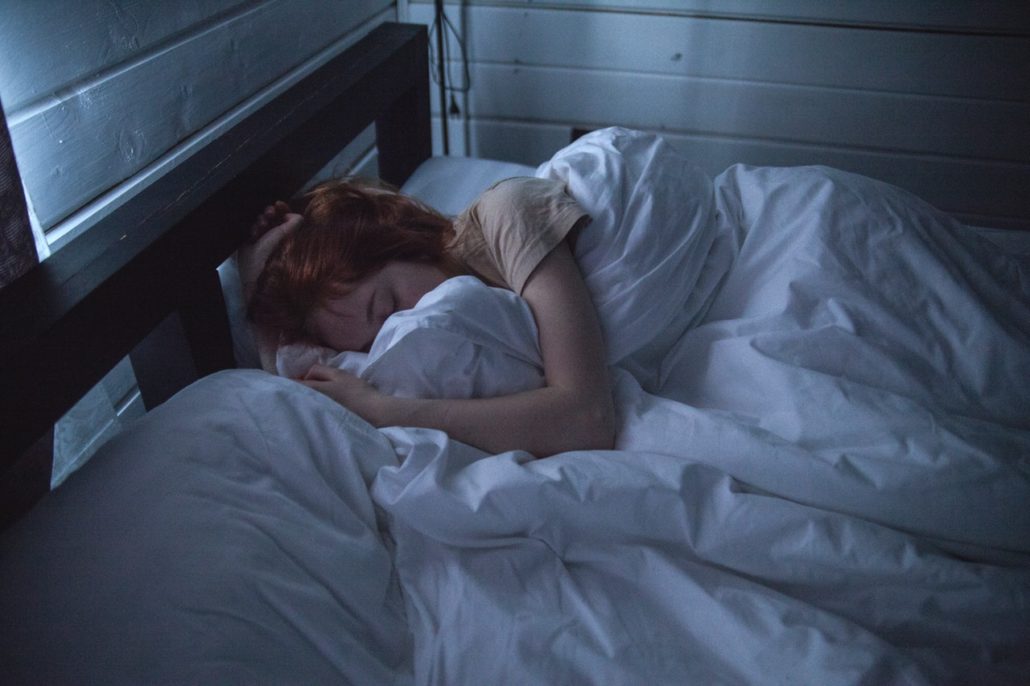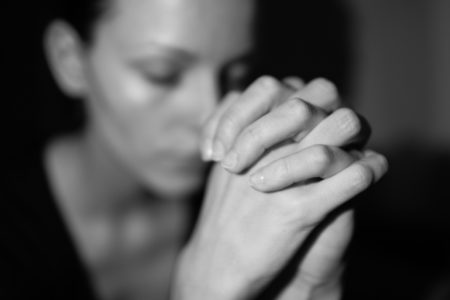What is Primary Insomnia?
Primary insomnia is a condition characterized by difficulty sleeping. Unlike secondary insomnia, primary insomnia isn’t the result of medication side effects or medical or psychological problems. The sleeplessness caused by primary insomnia can be frustrating for you at bedtime, and you can end up feeling tired or irritable throughout the day.
Primary insomnia is relatively common. According to The International Classification of Sleep Disorders, primary insomnia is a syndrome mainly composed of psychophysiological insomnia, paradoxical insomnia, and idiopathic insomnia [1].
Primary insomnia is fairly common, and sometimes it can resolve without treatment. But if you have persistent insomnia, you may need a diagnostic evaluation, including blood tests or an overnight sleep study to determine whether there is an underlying cause.

There are two types of insomnia – primary and secondary. Primary insomnia is sleeplessness that cannot be attributed to an existing medical, psychiatric or environmental cause (such as drug abuse or medications). Secondary insomnia is when symptoms of insomnia arise from a primary medical illness, mental disorders or other sleep disorders. It may also arise from the use, abuse or exposure to certain substances.

Get Your Life Back
Find Hope & Recovery. Get Safe Comfortable Detox, Addiction Rehab & Mental Health Dual Diagnosis High-Quality Care at the We Level Up Treatment Centers Network.
Hotline (877) 378-4154What is the primary cause of insomnia?
Insomnia may be the primary problem, or it may be linked with other conditions. Chronic insomnia is usually a result of stress, life events, or habits that disrupt sleep. Treating the underlying cause can resolve insomnia, but sometimes it can last for years.
Common causes of chronic insomnia include:
- Stress. Concerns about work, school, health, finances or family can keep your mind active at night, making it difficult to sleep. Stressful life events or trauma — such as the death or illness of a loved one, divorce, or a job loss — also may lead to insomnia.
- Travel or work schedule. Your circadian rhythms act as an internal clock, guiding such things as your sleep-wake cycle, metabolism and body temperature. Disrupting your body’s circadian rhythms can lead to insomnia. Causes include jet lag from traveling across multiple time zones, working a late or early shift, or frequently changing shifts.
- Poor sleep habits. Poor sleep habits include an irregular bedtime schedule, naps, stimulating activities before bed, an uncomfortable sleep environment, and using your bed for work, eating or watching TV. Computers, TVs, video games, smartphones or other screens just before bed can interfere with your sleep cycle.
- Eating too much late in the evening. Having a light snack before bedtime is OK, but eating too much may cause you to feel physically uncomfortable while lying down. Many people also experience heartburn, a backflow of acid and food from the stomach into the esophagus after eating, which may keep you awake.
Chronic insomnia may also be associated with medical conditions or the use of certain drugs. Treating the medical condition may help improve sleep, but the insomnia may persist after the medical condition improves.
Additional common causes of insomnia include:
- Mental health disorders. Anxiety disorders, such as post-traumatic stress disorder, may disrupt your sleep. Awakening too early can be a sign of depression. Insomnia often occurs with other mental health disorders as well.
- Medications. Many prescription drugs can interfere with sleep, such as certain antidepressants and medications for asthma or blood pressure. Many over-the-counter medications — such as some pain medications, allergy and cold medications, and weight-loss products — contain caffeine and other stimulants that can disrupt sleep.

- Medical conditions. Examples of conditions linked with insomnia include chronic pain, cancer, diabetes, heart disease, asthma, gastroesophageal reflux disease (GERD), overactive thyroid, Parkinson’s disease and Alzheimer’s disease.
- Sleep-related disorders. Sleep apnea causes you to stop breathing periodically throughout the night, interrupting your sleep. Restless legs syndrome causes unpleasant sensations in your legs and an almost irresistible desire to move them, which may prevent you from falling asleep.
- Caffeine, nicotine and alcohol. Coffee, tea, cola and other caffeinated drinks are stimulants. Drinking them in the late afternoon or evening can keep you from falling asleep at night. Nicotine in tobacco products is another stimulant that can interfere with sleep. Alcohol may help you fall asleep, but it prevents deeper stages of sleep and often causes awakening in the middle of the night.
Get Help. Get Better. Get Your Life Back.
Searching for Accredited Drug & Alcohol Rehab Centers Near You? Or Mental Health Support?
Even if you have failed previously, relapsed, or are in a difficult crisis, we stand ready to support you. Our trusted behavioral health specialists will not give up on you. Call us when you feel ready or want someone to speak to about therapy alternatives to change your life. Even if we cannot assist you, we will lead you wherever you can get support. There is no obligation. Call our hotline today.
FREE Addiction Hotline – Call 24/7What are the signs and symptoms of primary insomnia?
Signs and symptoms of primary insomnia may include:
Psychophysiological insomnia symptoms:
- Sleep disturbance varies from mild to severe.
- Sleeplessness may manifest as difficulty falling asleep or as frequent awakenings in the night.
- Persons with insomnia often find that they can sleep well anywhere else but in their own bedroom.
- Persons with this type of insomnia tend to be more tense and dissatisfied compared to good sleepers. Emotionally, they are typically repressors (suppress their feelings), denying problems.
Idiopathic insomnia symptoms:
- Insomnia is long-standing, typically beginning in early childhood.
- Persons with idiopathic insomnia often complain of difficulties with attention or concentration or hyperactivity.
- Emotionally, persons with childhood-onset insomnia are often repressors, denying and minimizing emotional problems.
- Individuals often show atypical reactions, such as hypersensitivity or insensitivity, to medications.
- Insomnia tends to persist over the entire life span and can be aggravated by stress or tension.
Sleep state misperception: Persons complain of insomnia subjectively, while sleep duration and quality are completely normal. They typically do not display daytime sleepiness or other signs of poor-quality sleep. These people may be described as having “sleep hypochondriasis.” They may subsequently develop anxiety and depression
How is primary insomnia diagnosed?
Getting enough sleep is a common concern that many people have throughout life. A diagnosis of primary insomnia includes several steps.
One of the main components of identifying insomnia is determining whether you actually need more sleep than you are getting. If you aren’t able to sleep as much as you need to, then the second aspect of primary insomnia diagnosis is focused on finding the reason for your lack of sleep.
The difference between primary and secondary insomnia is that primary insomnia doesn’t have a medical or emotional cause, while secondary insomnia does.
Diagnostic tests can include tests that measure insomnia and its effects. These tests include:
- Sleep study: A polysomnogram is an overnight sleep study that includes measures of brain activity, muscle activity, and breathing. With primary insomnia, the polysomnogram would be expected to show a decreased amount of sleep and a normal breathing pattern.
- Pittsburgh sleep quality index (PSQI): This is a questionnaire that includes a self-assessment of sleep. It can help in identifying sleep patterns, as well as issues like getting up frequently at night to use the toilet.
- Multiple sleep latency test (MSLT): An MSLT is a daytime nap study, in which you would be monitored during the day to see how quickly you fall asleep. The test results are a reflection of your sleep deprivation.
All of these sleep studies are used to help assess whether you are not getting enough sleep and what type of sleep interruption you are experiencing.
Other tests you might need include screening questionnaires or other assessments of emotional issues like depression and anxiety. Sometimes, people are aware of these problems, but many people brush off symptoms of depression and anxiety—and they can manifest as insomnia instead.
Comfortable Facilities & Amenities
High-Quality Addiction & Mental Health Rehabilitation Treatment
Rehab Centers TourRenowned Addiction Centers. Serene Private Facilities. Inpatient rehab programs vary.
Addiction Helpline (877) 378-4154Proven recovery success experience, backed by a Team w/ History of:
15+
Years of Unified Experience
100s
5-Star Reviews Across Our Centers
10K
Recovery Success Stories Across Our Network
- Low Patient to Therapist Ratio
- Onsite Medical Detox Center
- Comprehensive Dual-Diagnosis Treatment
- Complimentary Family & Alumni Programs
- Coaching, Recovery & Personal Development Events
Primary vs Secondary Insomnia
There are two types of insomnia: secondary insomnia and primary insomnia. Among these types of insomnia
Primary insomnia is the opposite of secondary insomnia, and means that your trouble sleeping is not directly related to some other underlying issue. While these terms are convenient and in many cases clear cut, it’s also easy to see that the line can become blurred. For example, in the case where both insomnia and depression are present, the question becomes, “Which comes first?”
Secondary insomnia means that you have insomnia as a direct result or symptom of something else, such as a health condition, medication, pain, substance abuse, etc. For example, depression can be an underlying cause for insomnia.

What is Secondary insomnia?
In the past, sleeping problems were sometimes labeled as comorbid insomnia or secondary insomnia. This meant that insomnia was believed to arise as a result of another condition such as anxiety, depression, sleep apnea, gastroesophageal reflux disease (GERD), or physical pain.
Contemporary research has generated a deeper understanding of insomnia that recognizes that sleeping problems often have a bidirectional relationship with other health issues. For example, while anxiety may contribute to insomnia, insomnia may trigger or exacerbate anxiety as well. Furthermore, insomnia triggered by another condition does not always go away even after that underlying issue is resolved.
Because of the complexity of these relationships, it becomes difficult to classify insomnia as strictly comorbid or secondary. Similarly, multiple contributing factors make identifying a single cause of insomnia challenging for many patients.
For these reasons, insomnia classification systems used in sleep medicine have moved away from this terminology and toward a broader understanding of insomnia.
Primary Insomnia Treatment
Sometimes mild cases of primary insomnia improve after a few days. However, being really exhausted can make you sleepy, and you might end up falling asleep and getting enough rest.
But often, the sleepiness doesn’t happen when you want it to, and you can end up falling asleep during the day—and then again having trouble sleeping at night when you want to sleep. If the pattern of napping during the day doesn’t work well for you, then you need to make some changes to help alleviate your insomnia.
Sleep Habits
You can make some lifestyle adjustments to help regulate your sleep. The key is to avoid things that prevent you from falling asleep when you want to.
Habits to consider include:
- Avoiding caffeine in the afternoon or evening
- Avoiding alcohol
- Not looking at your phone, computer, or television screens in the evening
- Staying away from bright lights for several hours before you want to fall asleep
- Scheduling your tasks so you feel that you are caught up before you plan to go to sleep
- Getting enough to eat so you aren’t hungry before you want to sleep
- Not eating so much that you feel bloated before you want to sleep
- Doing some light exercise several hours before you want to sleep
- Not napping during the day
World-class, Accredited, 5-Star Reviewed, Effective Addiction & Mental Health Programs. Complete Behavioral Health Inpatient Rehab, Detox plus Co-occuring Disorders Therapy.
CALL (877) 378-4154End the Addiction Pain. End the Emotional Rollercoaster. Get Your Life Back. Start Drug, Alcohol & Dual Diagnosis Mental Health Treatment Now. Get Free No-obligation Guidance by Substance Abuse Specialists Who Understand Addiction & Mental Health Recovery & Know How to Help.
Medical Treatment
If lifestyle habits don’t help alleviate your insomnia, you can talk to your healthcare provider about medical therapy. For example, your healthcare provider might recommend that you try melatonin or prescribe medication such as antidepressants, antihistamines, or benzodiazepines.
Usually, it is not considered ideal to take prescription medication for insomnia for longer than a few weeks. This is because these medications can have side effects, and the benefits might not be long-lasting.
Some people notice a benefit from treatment with non-prescription-based strategies like counseling, cognitive behavioral therapy, or acupuncture. These approaches might have a longer-lasting effect without the risk of side effects.
Cognitive behavioral therapy for insomnia
Cognitive-behavioral therapy for insomnia (CBT-I) can help you control or eliminate negative thoughts and actions that keep you awake and is generally recommended as the first line of treatment for people with insomnia. Typically, CBT-I is equally or more effective than sleep medications.
The cognitive part of CBT-I teaches you to recognize and change beliefs that affect your ability to sleep. It can help you control or eliminate negative thoughts and worries that keep you awake. It may also involve eliminating the cycle that can develop where you worry so much about getting to sleep that you can’t fall asleep.
The behavioral part of CBT-I helps you develop good sleep habits and avoid behaviors that keep you from sleeping well. Strategies include, for example:
- Stimulus control therapy. This method helps remove factors that condition your mind to resist sleep. For example, you might be coached to set a consistent bedtime and wake time and avoid naps, use the bed only for sleep and sex, and leave the bedroom if you can’t go to sleep within 20 minutes, only returning when you’re sleepy.
- Relaxation techniques. Progressive muscle relaxation, biofeedback and breathing exercises are ways to reduce anxiety at bedtime. Practicing these techniques can help you control your breathing, heart rate, muscle tension and mood so that you can relax.
- Sleep restriction. This therapy decreases the time you spend in bed and avoids daytime naps, causing partial sleep deprivation, which makes you more tired the next night. Once your sleep has improved, your time in bed is gradually increased.
- Remaining passively awake. Also called paradoxical intention, this therapy for learned insomnia is aimed at reducing the worry and anxiety about being able to get to sleep by getting in bed and trying to stay awake rather than expecting to fall asleep.
- Light therapy. If you fall asleep too early and then awaken too early, you can use light to push back your internal clock. You can go outside during times of the year when it’s light outside in the evenings, or you can use a light box. Talk to your doctor about recommendations.

Primary Insomnia treatment near you
At We Level Up NJ provides world-class care with round-the-clock medical professionals available to help you cope. In addition, we work as an integrated team providing information about primary insomnia causes and other aspects of treatment. Make this your opportunity to reclaim your life. Call today to speak with one of our treatment specialists. Our specialists know what you are going through and answer any of your questions.
Experience Transformative Recovery at the We Level Up Treatment Center.
See our authentic success stories. Get inspired. Get the help you deserve.



Start a New Life
Begin with a free call to an addiction & behavioral health treatment advisor. Learn more about our dual-diagnosis programs. The We Level Up treatment center network delivers various recovery programs at each treatment facility. Call to learn more.
- Personalized Care
- Caring Accountable Staff
- Comfortable Amenities
- Licensed & Accredited
- Renowned w/ 5-Star Reviews